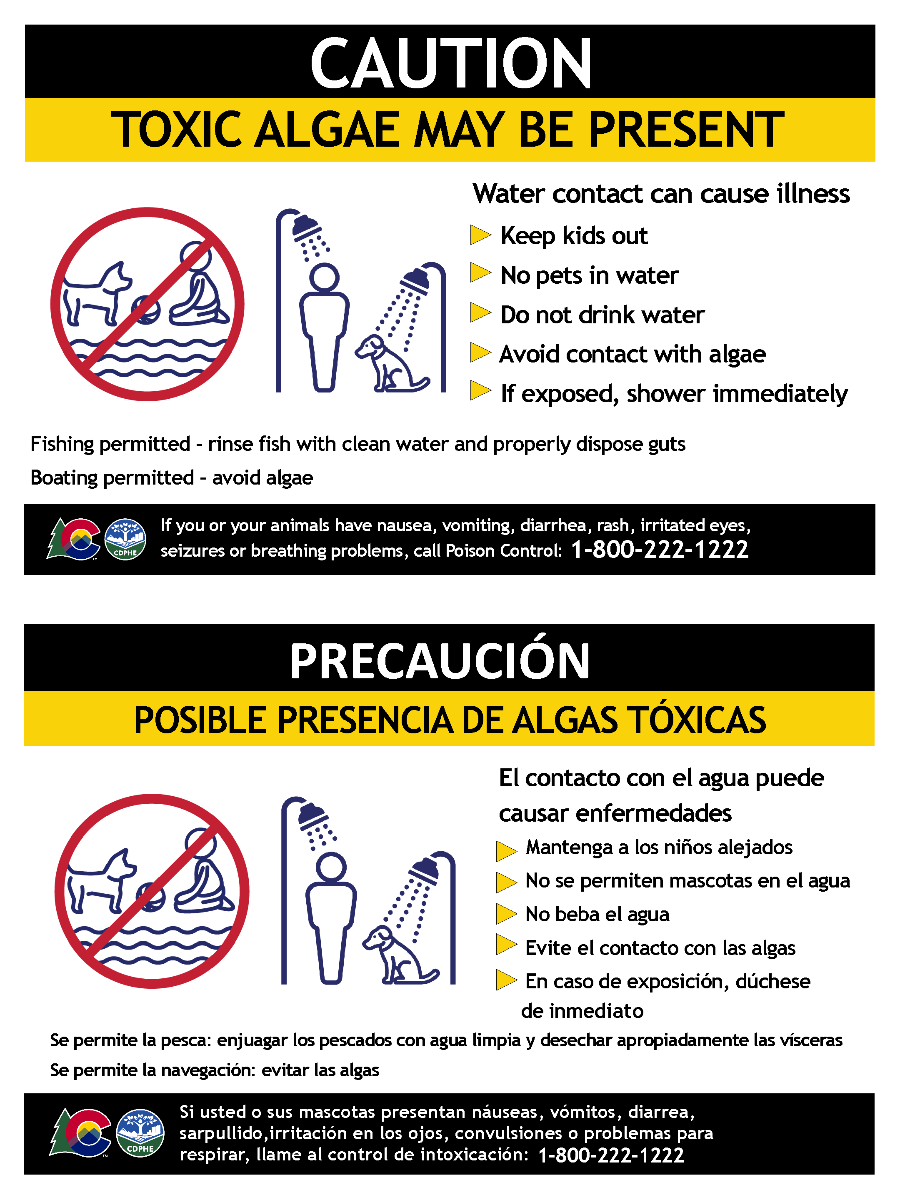CPW Warns Public to Avoid Algae Bloom in Holbrook Reservoir SWA

Description: Image Courtesy of Colorado Parks and Wildlife...

CPW Warns Public to Avoid Algae Bloom in Holbrook Reservoir SWA
SWINK, Colo. – A growing bloom of blue-green algae, suspected to be toxic, at Holbrook Reservoir State Wildlife Area prompted Colorado Parks and Wildlife on Tuesday to warn the public to avoid contact with the water.
“Algae is visible in the water,” said Todd Marriott, CPW Area Wildlife Manager in Lamar. “Out of abundance of caution, CPW has closed the water to all activity except fishing to prevent the risk of exposure to humans and their pets.
“We suspect the algae can be harmful to people and pets, if touched. It can give sensitive people a bad rash, for example. If it is toxic, it’s possibly fatal if ingested.”
Signs are posted at the reservoir by CPW warning visitors to avoid the water and explaining the danger of the algae blooms. People are advised to keep kids and pets out of the water at risk of death from the toxic algae. The signs warn people not to drink the water and no water recreation including swimming, skiing, paddle-boarding and wading.
Marriott said the reservoir holds irrigation water for area farms and likely will be drained in a few weeks, eliminating the issue. But until then, the water is closed.
If anyone or their pet comes into contact with the algae, the signs urge them to shower immediately with fresh, clean water.
“You can still fish during an algae bloom,” Marriott said. “But there should be no skin-to-water contact.
“It’s also important to take care when handling and cleaning any fish caught in Holbrook. Toxins accumulate in the liver and guts of fish. So it’s important any fish taken is properly cleaned and thoroughly cooked before eating it.”
Algae blooms are common when temperatures rise, usually in late summer. CPW has been closely monitoring the reservoir, which is part of a 670-acre CPW wildlife area located 3 miles north of Swink, not far from Rocky Ford and La Junta in southeast Colorado. Other forms of recreation still allowed at the SWA include: boating, picnicking, wildlife viewing and camping.
Algae are an important part of aquatic food webs, but some types of blue-green algae are capable of producing toxins that may cause negative health impacts for humans and pets at elevated concentrations. Currently there is no method to remove toxins from lakes.
The Colorado Department of Public Health and Environment (CDPHE) recommends the following:
-
Keep kids out
-
No pets in water
-
Do not drink water
-
Avoid contact with algae
-
If exposed, shower immediately
More information on blue-green algae is available on CDPHE’s website.
The public can help reduce the occurrence of blue-green algae blooms by preventing nutrients (nitrogen and phosphorus) from entering waterways through responsible use of lawn fertilizers, picking up pet waste, and avoiding using deicers that contain urea.
Follow SECO News on Facebook.
Subscribe to the SECO News YouTube Channel.
Follow SECO News on Facebook.
Subscribe to the SECO News YouTube Channel.
Press releases Sponsor




.png)


.png)




.png)



.png)


.png)







